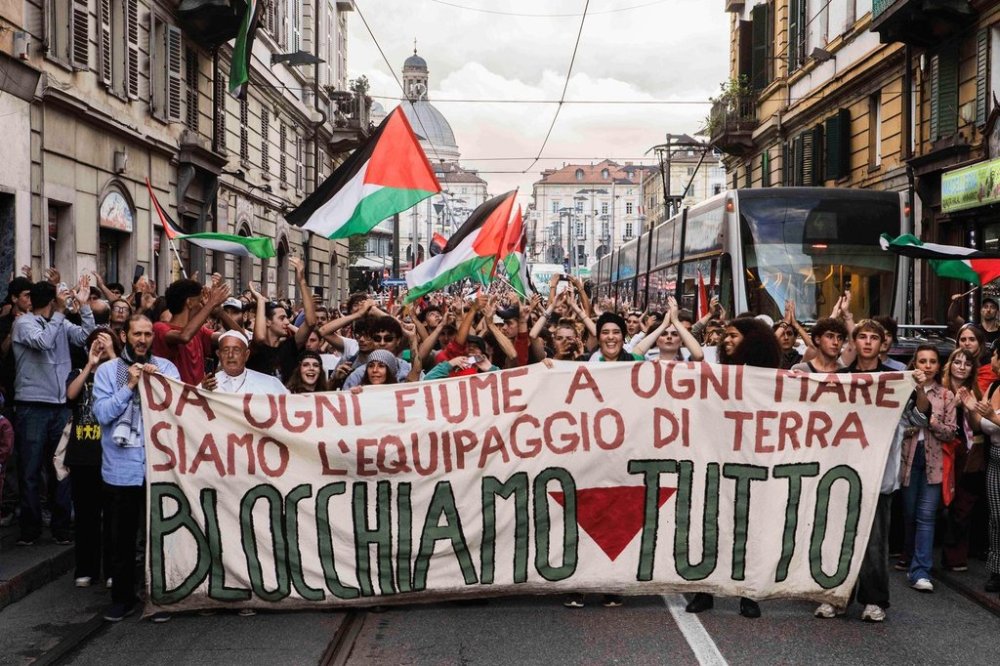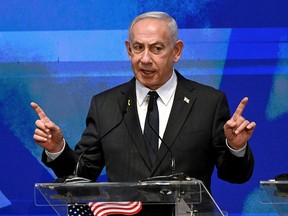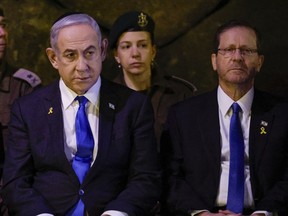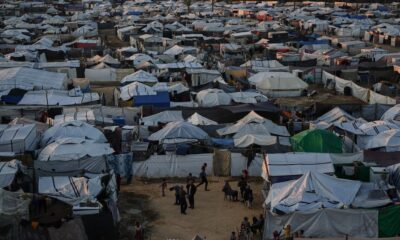World
Pro-Palestinian Protests Surge Across Europe Amid Gaza Conflict

As anger over the ongoing conflict in Gaza escalates, major European cities are witnessing a surge in pro-Palestinian protests. Calls are intensifying to exclude Israel from various sporting and cultural events. European navies have also been deployed to safeguard activists attempting to deliver aid to Gaza, alongside an unprecedented wave of countries recognizing a Palestinian state.
The humanitarian crisis in Gaza has prompted significant backlash against Israel’s military actions. Since the outbreak of hostilities on October 7, 2023, when Hamas militants launched attacks that resulted in the deaths of approximately 1,200 Israelis and the capture of more than 250 hostages, Israel’s military response has reportedly led to over 66,000 fatalities in Gaza, according to the Gaza Health Ministry. This ministry, affiliated with the Hamas-led government, indicates that women and children constitute nearly half of the casualties, although it does not differentiate between civilians and combatants.
Shifting Political Landscape
European leaders are increasingly vocal in their criticism of Israel’s conduct during the conflict. Italian Prime Minister Giorgia Meloni, traditionally one of Israel’s staunchest allies in the EU, recently expressed her support for potential sanctions against Israel. This marked a significant shift in her stance, coinciding with widespread protests across Italy, including a nationwide strike. Addressing the U.N. General Assembly, Meloni stated, “Israel ended up violating humanitarian norms, causing a massacre among civilians.”
The protests across Europe are not only numerous but also diverse, reflecting a broad spectrum of public sentiment. According to the Armed Conflict Location & Event Data Project (ACLED), pro-Palestinian demonstrations have increased dramatically, from 780 events recorded between December and April to over 2,066 in the past five months, averaging at least 15 protests daily. This upsurge includes participation from significant segments of Europe’s Muslim communities, a vital electorate in nations like France and Germany. In stark contrast, only 51 pro-Israel protests occurred during the same six-month period.
This growing dissent has prompted a notable shift in public opinion towards Israel. As Sanam Vakil, director of the Middle East and North Africa program at Chatham House, pointed out, “There has been a ground-breaking shift in Europe where populations have been putting more pressure on their governments, which has helped break taboos over criticism of Israel.”
Responses from European Leaders
This shift in public sentiment has not gone unnoticed by political leaders. In a recent address to the U.N., Israeli Prime Minister Benjamin Netanyahu acknowledged the changing dynamics, stating, “Sure, in the days immediately following October 7, many supported Israel. But that support quickly evaporated when Israel did what any self-respecting nation would do in the wake of such a savage attack.”
The European Union has historically maintained close ties with Israel, viewing it as a partner born of shared historical experiences post-World War II. However, recent events have strained these relationships. Following Israel’s military actions, EU political chief Ursula von der Leyen called for increased pressure on Israel to halt its offensive, a move that drew sharp criticism from Israel’s Foreign Minister, Gideon Saar.
Von der Leyen has suggested raising EU tariffs on certain Israeli goods and imposing sanctions on specific Israeli settlers and officials. These proposals were to be discussed by EU leaders in Copenhagen, although achieving consensus among the 27-nation bloc is challenging. Germany, a key ally of Israel, faces internal divisions regarding its stance on the conflict, further complicating the EU’s unified approach.
Italy’s potential shift in policy towards recognizing a Palestinian state adds another layer to the evolving landscape. Meloni’s expressed support for such recognition echoes similar moves by France, Belgium, and other nations, suggesting a growing consensus among some European states to pressure Israel.
As tensions escalate, the call for boycotts of Israeli participation in high-profile events like the Eurovision Song Contest has gained traction, particularly after recent protests disrupted sporting events in Spain. Spanish Prime Minister Pedro Sanchez remarked that Israel should be barred from such competitions until the “barbarity” in Gaza ceases.
With protests and political pressures mounting, Europe’s relationship with Israel appears to be at a critical juncture. The outcome of these developments will likely shape not only diplomatic ties but also the broader discourse surrounding the Israel-Palestine conflict in the coming months.
-

 Politics4 weeks ago
Politics4 weeks agoSecwepemc First Nation Seeks Aboriginal Title Over Kamloops Area
-

 World5 months ago
World5 months agoScientists Unearth Ancient Antarctic Ice to Unlock Climate Secrets
-

 Entertainment5 months ago
Entertainment5 months agoTrump and McCormick to Announce $70 Billion Energy Investments
-

 Science5 months ago
Science5 months agoFour Astronauts Return to Earth After International Space Station Mission
-

 Lifestyle5 months ago
Lifestyle5 months agoTransLink Launches Food Truck Program to Boost Revenue in Vancouver
-

 Technology3 months ago
Technology3 months agoApple Notes Enhances Functionality with Markdown Support in macOS 26
-

 Lifestyle3 months ago
Lifestyle3 months agoManitoba’s Burger Champion Shines Again Amid Dining Innovations
-

 Top Stories2 months ago
Top Stories2 months agoUrgent Update: Fatal Crash on Highway 99 Claims Life of Pitt Meadows Man
-

 Politics4 months ago
Politics4 months agoUkrainian Tennis Star Elina Svitolina Faces Death Threats Online
-

 Sports5 months ago
Sports5 months agoSearch Underway for Missing Hunter Amid Hokkaido Bear Emergency
-

 Politics5 months ago
Politics5 months agoCarney Engages First Nations Leaders at Development Law Summit
-

 Technology5 months ago
Technology5 months agoFrosthaven Launches Early Access on July 31, 2025





















